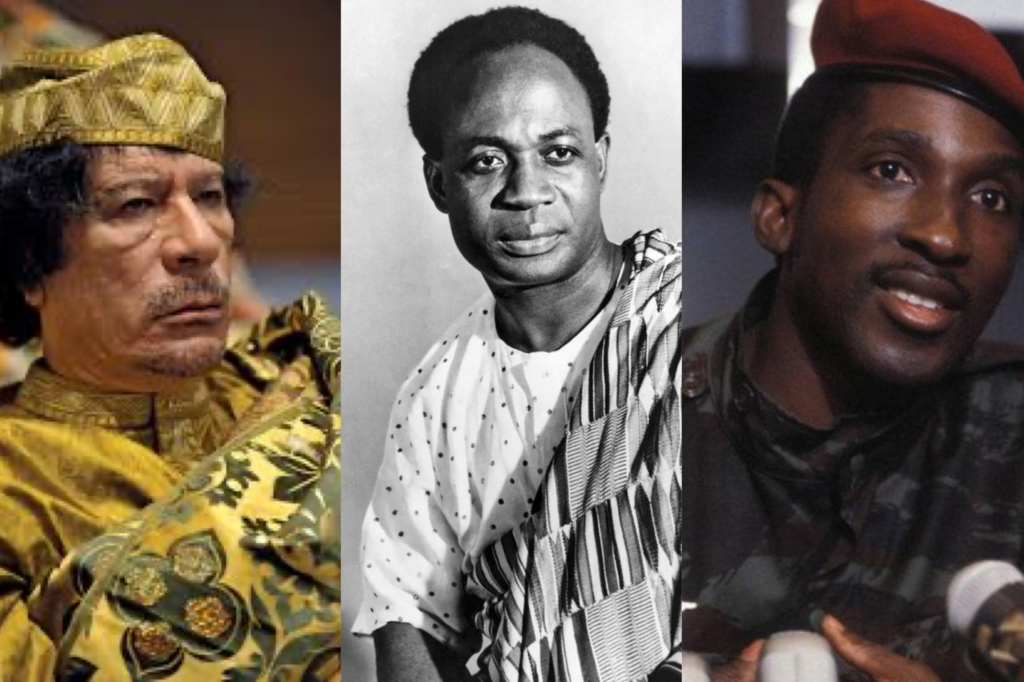Africa stands at a critical juncture in its history. Despite being the cradle of humanity and a continent richly endowed with natural resources, it remains fragmented, underdeveloped, and continuously exploited by foreign powers.
The dream of a united Africa, a “United States of Africa” once championed by Pan-African icons like Dr. Kwame Nkrumah, Thomas Sankara, Muammar Gaddafi and Patrice Lumumba must be revisited with urgency and conviction.
Africa must undertake a radical restructuring, not only of its institutions and borders but more importantly, of the mindset instilled by centuries of colonial domination and neocolonial interference.
The Colonial Legacy and Its Modern Manifestations
Colonialism did not end with the lowering of foreign flags or the declaration of independence. It merely evolved into subtler, more insidious forms. As Frantz Fanon warned in The Wretched of the Earth, “Imperialism leaves behind germs of rot which we must clinically detect and remove from our land but from our minds as well.” The psychological and structural chains remain intact, manifesting in economic dependence, cultural alienation, and political instability.
Artificial borders, imposed by colonial cartographers during the Berlin Conference of 1884–85, continue to divide ethnic groups, fuel conflict, and hinder economic integration. Meanwhile, Western powers maintain a stranglehold on Africa’s wealth through multinational corporations, exploitative trade agreements, and foreign aid programs that function more as tools of control than of assistance.
Resource Exploitation and Economic Paradox
It is a cruel irony that the world’s richest continent in terms of natural resources is home to some of the poorest people. Africa holds over 30% of the world’s mineral reserves, including gold, diamonds, cobalt, and rare earth metals, yet remains on the margins of global economic power. As Walter Rodney so aptly described in How Europe Underdeveloped Africa, “The question is not whether Africa is poor, but why Africa is poor despite her riches.”
Western nations, devoid of such resources themselves, have built prosperous economies by extracting and refining Africa’s wealth. The wealth of Europe and the global North has been, and continues to be, constructed on the exploitation of African labour and minerals. The global monetary system, still pegged to gold reserves in many respects, is propped up by resources that flow from Africa under exploitative terms.
The Illusion of Aid and Dependency
Contrary to popular belief, it is not Africa that relies on the West, it is the West that relies on Africa. Foreign aid, often portrayed as benevolence, is a strategic investment by Western countries to maintain influence and extract more value than they give. As Ugandan scholar Yoweri Museveni once noted, “Aid is like a drug; it only brings temporary relief but never a solution.”
A 2014 report by Health Poverty Action revealed that for every $1 of aid received, Africa loses more than $24 through illicit financial flows, debt servicing, and trade imbalances. This façade of generosity keeps Africa in a state of perpetual dependency, unable to pursue genuine self-determination.
Communication and Border Fragmentation
While the European Union benefits from open borders, a common market, and seamless communication, Africa remains fractured by the very borders that were imposed by colonial regimes. These divisions hinder trade, mobility, and the exchange of ideas. Moreover, Africa lacks a unified media and information infrastructure, making it susceptible to external narratives and misinformation.
Kwame Nkrumah foresaw these dangers. In his book Africa Must Unite, he warned, “Divided we are weak; united, Africa could become one of the greatest forces for good in the world.” The failure to realize his vision has allowed foreign interests to maintain their grip through the promotion of disunity.
Assassination of Pan-African Leaders
Those who dared to challenge this status quo, Nkrumah, Sankara, Gaddafi, Patrice Lumumba, were systematically discredited, overthrown, or assassinated. These leaders understood that African unity was not just a political ideal but a strategic necessity. Their elimination was not coincidental, it was orchestrated by external forces who feared a strong, independent, and united Africa.
As Gaddafi famously declared, “The black race shall prevail throughout the world if Africa unites.” His vision for a continental currency backed by gold, a united military force, and centralized governance threatened the foundations of Western neocolonialism.
The Path Forward: Unification and Reclaiming Sovereignty
The vision of a United States of Africa must be rekindled with vigor. This involves:
• Dismantling Artificial Borders: Political will is required to phase out colonial borders in favour of regional and continental integration.
• Pan-African Currency: Establishing a common currency would challenge Western monetary domination and enhance intra-African trade.
• Continental Communication Infrastructure: A unified media system can foster African narratives, protect cultural identity, and disseminate knowledge free from foreign bias.
• Education and Mindset Revolution: Africans must be taught to value their heritage, trust their capabilities, and reject the inferiority complex that colonialism embedded.
• Institutional Reform and Leadership Accountability: Africa must breed leaders who serve the collective interest, not foreign agendas. Institutions should be fortified to resist corruption and manipulation.
Conclusion
Africa’s future lies in its unity. The time has come for a rebirth, one that demands self-belief, strategic cooperation, and a rejection of all vestiges of colonial manipulation.
The establishment of the United States of Africa is not a utopian dream; it is a necessary mission. For as long as Africa remains divided, it will remain vulnerable. But in unity, as Thomas Sankara said, “We must dare to invent the future.”
DISCLAIMER: The Views, Comments, Opinions, Contributions and Statements made by Readers and Contributors on this platform do not necessarily represent the views or policy of Multimedia Group Limited.
DISCLAIMER: The Views, Comments, Opinions, Contributions and Statements made by Readers and Contributors on this platform do not necessarily represent the views or policy of Multimedia Group Limited.


